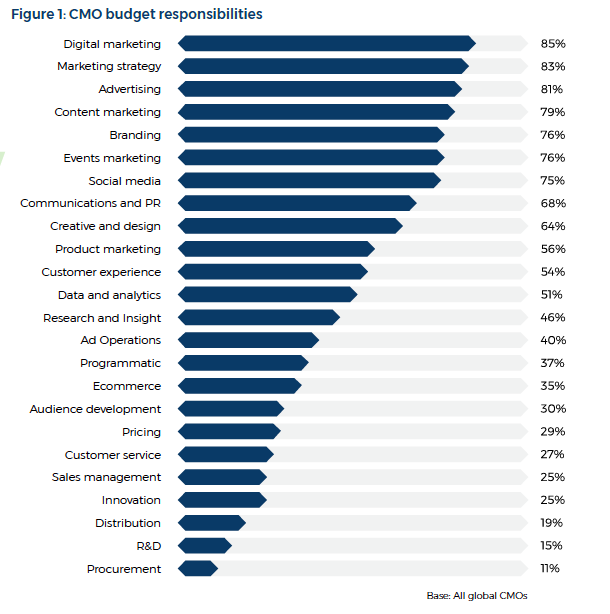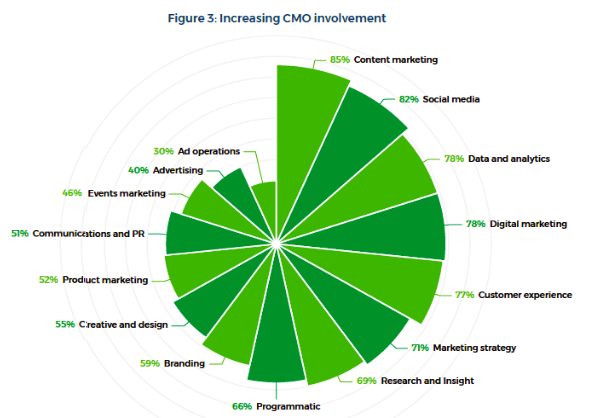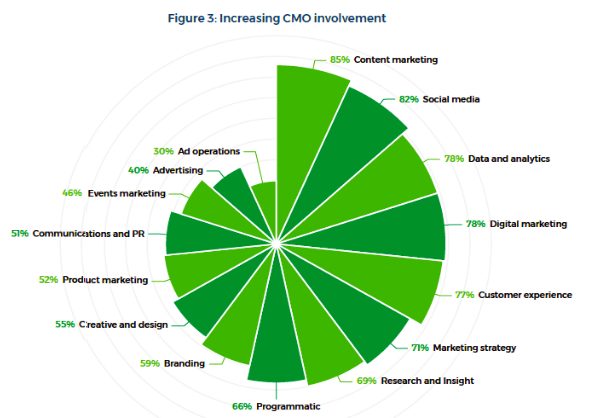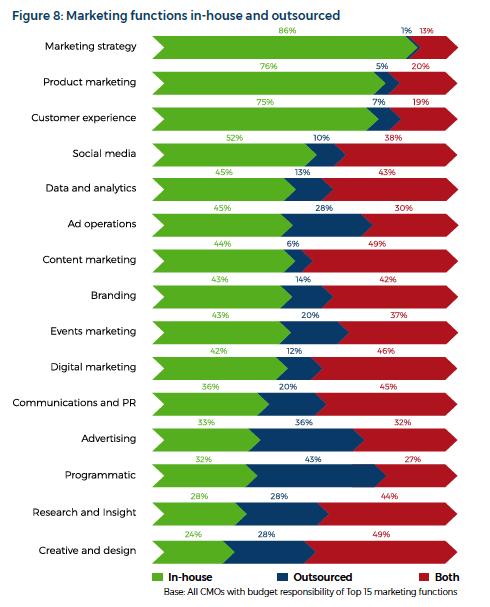What: NewBase has published its evolution of marketing survey “The Evolving Marketer.” The online global survey includes 120 CMOs in over 20 markets. Newbase conducted the survey between November 2017 and January 2018. The survey explores the role of the CMO and the changing marketing landscape.
Why it matters: In order to help companies stay on top of the game, today’s CMOs must evolve with the changing expectations of the customers. They must manage everything from branding to promotions, content creation to distribution, and data analytics to overall marketing strategies. They must keep customer satisfaction in mind at all times.
The new role of the CMO in the evolution of marketing
NewBase explains in its recently-published study titled “The Evolving Marketer” that the new role of the CMO is to move through the “elevator shaft” of the company. The CMO must manage information from the ground to the top executive levels. He or she must drive revenue and lead their business through nowadays’ fast-paced change and transformation. Evolving technology expands the role of the CMO widely. Proof of that is that the CMO now oversees an average of 12 creative and MarTech areas. Sixty-four-percent handle at least 10 or more areas.
Digital marketing occupies the top of the list out of 24 marketing functions measured by the survey. That’s according to 85% of respondents. Marketing strategy (83%) follows closely, as do advertising (81%), content marketing (79%), and branding (76%).

CMOs see their roles differently
The survey of CMOs and the evolution of marketing identified a clear 50/50 split on how CMOs perceive their roles. They either consider themselves “creative-driven” or “analytically minded.” The Creative CMO, now storyteller and copywriter, places great emphasis on perfecting the customer experience. He or she most likely gained experience in traditional marketing later expanding into the tech realm. They now need to be “digitally astute, fully immersed in the technology stack, and accountable for business results.” Content marketing (85%) occupies their main area of budget responsibility. Digital marketing and events (83%), marketing strategy (81%) and branding (80%) follow.

Tech CMOs struggle with pace of change
The Tech CMOs most likely built their experience based on technology innovations and data mining and analytics. They’re involved in sales and advertising processes. Digital marketing and advertising are their main marketing functions (86%). That is followed by marketing strategy (85%). Even though Tech CMOs try to keep up to speed with tech changes, 61% of overall global CMOs consider that it’s essential. But they say it’s often difficult for them to follow up on the stream of new stuff.
The most reasonable solution would be to merge the talents of both CMO counterparts. Up to 77% of CMOs agree that “there is an increasing interest in marrying art, science, and data”. Ninety-two percent of the respondents agreed that “creative and analytics need to work more closely together to drive success.” It only makes sense that a Tech CMO could benefit from a strong creative partner. A Creative CMO could work closely with an analytical second in command.
Importance of data analytics in the evolution of marketing
CMOs agree that “marketing decisions should be based on how they impact the customer, rather than the business.” As a result, data analytics takes up more of their time and responsibilities, according to the survey. It registers the highest percentage of budget increase. As technology dictates the customer’s experience with brands, content marketing, social media, digital marketing, and data analytics occupy areas of great concern for companies. Moreover, the increased importance of these areas in recent years has caused an expansion of the CMO role. The CMO takes part in almost all areas of marketing. Sixty-one-percent of global CMOs consider the role to be complex. Almost half agree that “tech changes often make it difficult for the CMO to keep up.” Ninety-seven-percent agree that “It is essential to keep up with innovations in technology.”

However, the global CMO claims that over half the data available “is not being used to its full potential.” Instead of just accumulating and storing data, CMOs say that some of the analytics budget should be used in deeper analytics, interpretation, and implementation of the data they already have. Seventy-four percent of respondents agreed that it’s more important to refine data management and analytics systems than to focus on the latest tech.
Outsourcing still counts
Taking into consideration the extended scope of their responsibilities, it’s only natural that CMOs need to surround themselves with a competent team. In order to do that, they must select a mix of in-house and outsourced team members. The highest “fully outsourced” service among global CMOs is programmatic (43%), followed by advertising (36%), creative and design, and research and insight (both 28%). Nevertheless, many critical functions need to remain in-house. Marketing strategy is delivered fully from company insiders (86%), followed by product marketing (76%), customer experience (75%), and social media (52%).

A successful CMO must always remain in command and at the center of the organization. “The Evolving Marketer” shows that empowering the CMO with more autonomy over budgets, operational and strategic decisions can have a positive impact on the business. It can also strengthen their relationship with the board member. That’s because the board members need to work closely with the CTO to define goals and functions. They also have to educate CFOs so they can fully understand the impact of marketing on their businesses.
[ctalatinb]







